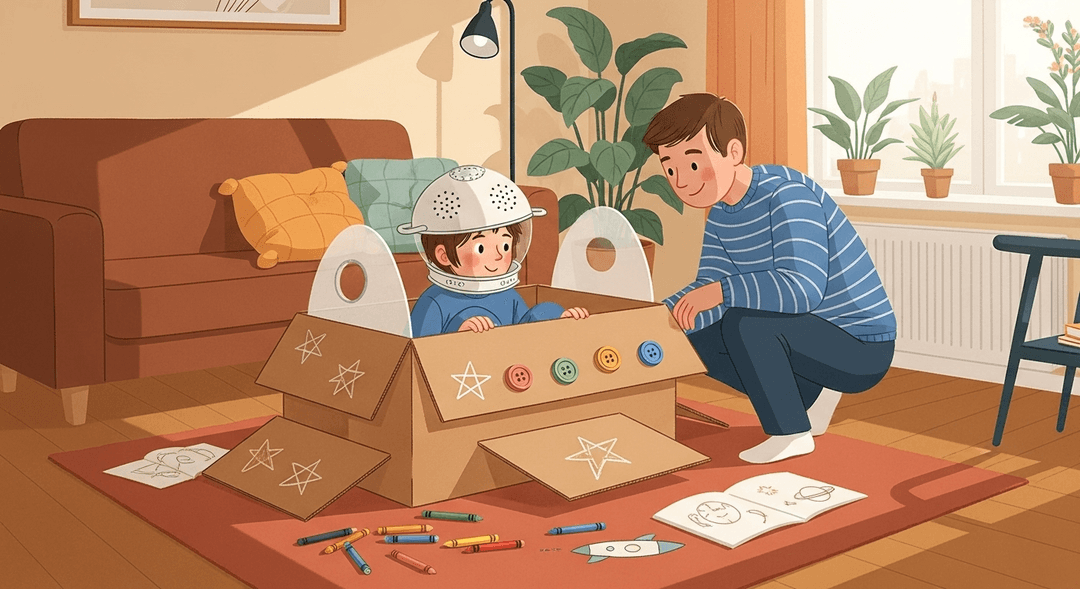Help Them Identify Their Strengths and Talents
You know that moment when your kid turns a cardboard box into a spaceship and you’re like, 'Wait, are you an actual genius or just avoiding bedtime again?' This is about catching those flashes of brilliance (or at least, enthusiastic weirdness) and giving them the 'Hey, that’s cool!' they deserve. If you’ve ever wondered whether your child’s talent is stacking cheese slices or reciting dinosaur facts at dinner, this is your playbook for figuring it out—without needing a talent scout or a reality show.
When kids feel seen for what makes them unique, their brains light up like a toddler at a bubble machine. Recognizing strengths boosts self-esteem, resilience, and motivation—it’s like giving their neural pathways a high-five. For parents, it’s a shortcut to connection (and sometimes, a break from hearing 'I’m bored' every five minutes).
How to do it
-
Observe your child as they play in their usual environment, such as the living room floor. Take notes on what activities, toys, or topics naturally capture their attention.
-
Engage your child with open-ended questions. Try prompts like, "What was your favorite part of today?" or "If you could do anything right now, what would you choose?" This encourages them to express their true interests.
-
Celebrate even the smallest signs of enthusiasm or talent. For example, acknowledge their creativity by saying, "Wow, you’re really good at making up silly songs!"
-
Allow your child the freedom to explore new activities, even if it means things get a little messy—like when your kitchen temporarily resembles an art supply store.
-
Resist the temptation to turn every interest into a potential career path. Let your child enjoy their passions for what they are, unless you’re genuinely hoping for a professional mud pie chef in the family.
Key Tips:
- Pay close attention to what excites your child without steering them in a particular direction.
- Use open-ended questions to learn more about their thoughts and preferences.
- Offer positive feedback to boost their confidence and motivation.
- Provide opportunities and space for exploration, even if it gets a bit chaotic.
- Keep the focus on fun and discovery, not future achievements.
